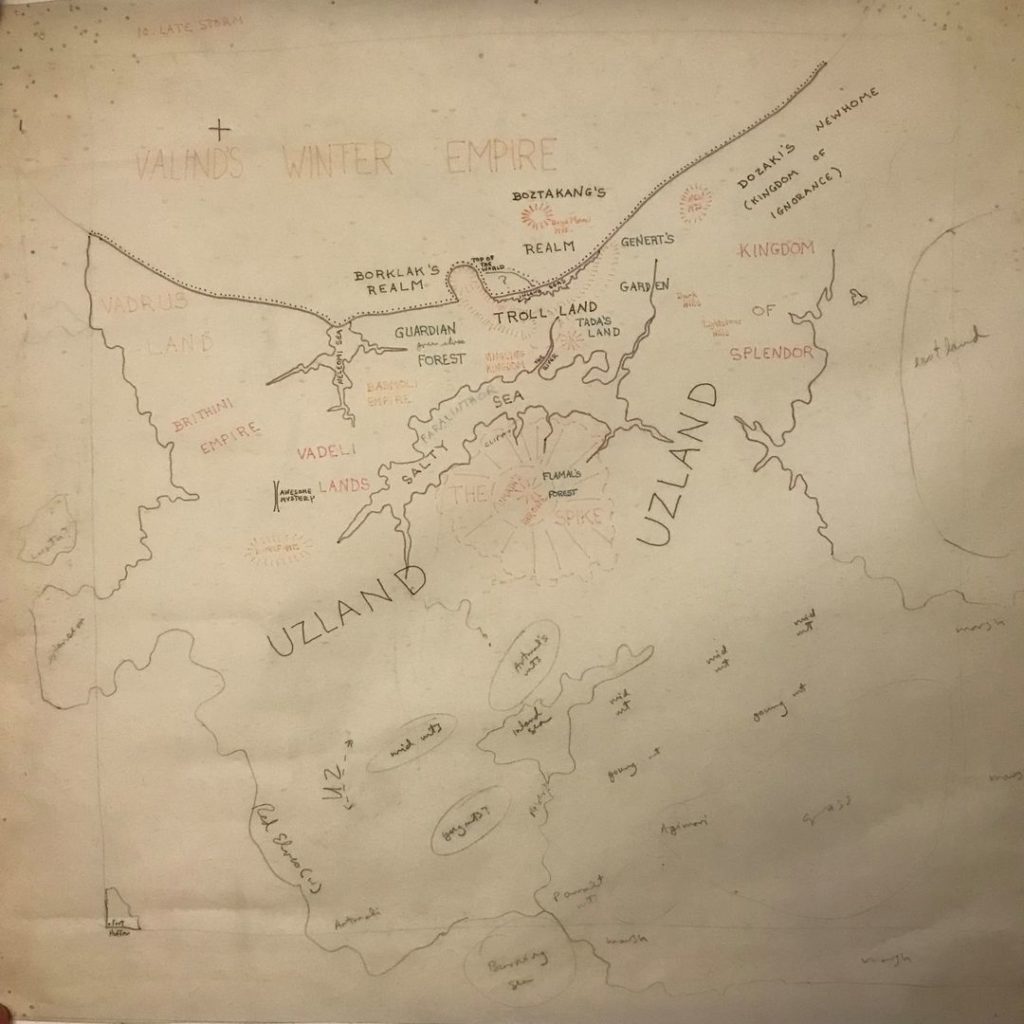One of Greg’s earliest manuscripts on heroquesting hits all the key points, explains what it is, and the key elements involved. I’ve added a few footnotes, but let this digest a little.
Heroquesting is a term used to describe the active interaction of a free-willed individual with the unchanging realm of Godtime. People heroquest because it is a way of obtaining great magical power, divine knowledge, legendary artifacts, and immense personal fame and prestige. It is also possible for a person to gain immortality and worship: to become a god.
The mythology of Glorantha clearly defines the differences between the changing realm of mortal life and the unchanging immortality of the beings of mythology. This came about after the end of the world in the event called the Cosmic Compromise, and ever since then Time has separated mortals and mythos. Time keeps the gods young and makes men die.
The difference between the realms of the gods and of men is much more significant than mere mortality, for there are ramifications of great import. The most important is that mortals are born and die, but they are always changing, whereas the gods never change unless acted upon by an outside force.
The will of mortals allows a person to change themselves, change the mundane world, or even change the static world of mythology. Jeff says: When we interact with the Godtime, we mortals can change our experience of it, thereby changing the myth. That becomes the new story and the new baseline.
The Heroquesting process is a quest. By using appropriate magic and methods the individual and their followers enter into the Other Side. Living there are the spirits, heroes, and gods of bygone ages frozen into their ancient actions until living, free-willed energy comes close by. The mythical characters spring to life and the mortal invaders may view, interact, or otherwise take part in the drama which created the world.
Heroquests are designed for a single person to be the center of the action. Most are also designed to require the help of other specialists, and also to reward companions and followers with lesser benefits than those of the main quester. Jeff says: This is THE primary challenge of heroquests in a roleplaying game with its group of player characters.
Heroquests generally take the form of a “path” which traverses a part of the mythical realm. It is presented as a starting place, a series of waystops where certain events occur, and then a climax. The climax is typically known beforehand because it is the specific act which will give the heroquester the thing they went off to get. This requires passing whatever test is appropriate, then the sacrifice of some part of them. Jeff says: This is mechanically simulated by a sacrifice of POW for Hero Points.
Afterwards the quest ends with a return of some type back to the mundane world.It is always possible to leave a known path and strike off across the Other Side. This has been done before and there has evolved a rough map of the Other Side. However, the map requires that it be viewed in several different ways at once sometimes because of the interrelationships of certain mythical events. Successful heroquesters are able to switch from path to event and from map to map. Jeff says: e.g., the Mythic Age maps in the Guide to Glorantha and the more detailed ones in the Cults Book.
The maps and paths intercross as nodules of mythology which mark the events of importance. Thus it may be possible for a character to start at the Weapons Contest (between Orlanth and Yelm) and then follow the storm god until the Theft of the Sword (from Humakt) and then follow the Sword Myth through the hands of the gods that get it and enter the Underworld by marching with Zorak Zoran’s army, thereby bypassing regular checkpoints! Jeff says: This does not need to be the result of careful review of all the stories Greg or I ever wrote. The gamemaster can and should create their own mythic events that “fit” into the themes and archetypes of Glorantha. What matters is that myths should cross each other so that players can work with that.
![]()
![]()
Greg got so close – within a centimetre! = but then went down the rabbit-hole of creating a new Will and later a Fame characteristic, and then things got too complex to run.
Glorantha can be about ducks, dark trolls and trollkin, and cattle raids. It can at the same time also be about myth and how we interact with the divine.

